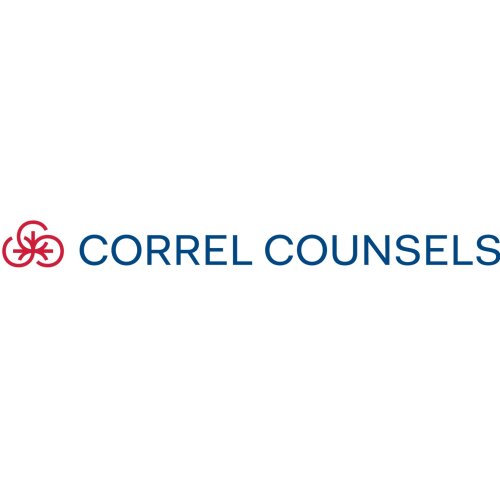Best Mining Law Lawyers in Maldives
Share your needs with us, get contacted by law firms.
Free. Takes 2 min.
Or refine your search by selecting a city:
List of the best lawyers in Maldives
About Mining Law in Maldives
Mining law in Maldives encompasses the legal framework governing the exploration, extraction, and management of mineral resources on land and within the marine boundaries of the country. Due to its unique geography consisting of numerous islands and a reliance on environmental resources, the Maldivian government takes a cautious approach to mining activities to protect its vulnerable ecosystems. Mining is predominantly regulated at the national level and is mostly limited to the extraction of sand, coral, and aggregates for use in construction and development projects. There are strict environmental and operational guidelines that must be adhered to in order to obtain the necessary permits and licenses for any mining operation in the Maldives.
Why You May Need a Lawyer
If you are considering engaging in mining activities in Maldives, consulting a lawyer can be crucial. Here are common scenarios where legal assistance is highly recommended:
- Navigating complex licensing and permitting processes for sand, coral, or aggregate extraction - Understanding your rights and obligations under Maldivian mining regulations - Responding to allegations of illegal mining or environmental violations - Drafting or reviewing contracts with subcontractors, suppliers, or government agencies - Handling land use disputes or community concerns arising from mining activities - Ensuring environmental compliance and managing the submission of environmental impact assessments - Responding to enforcement actions or penalties imposed by regulatory bodies Lawyers can provide tailored advice to safeguard your interests, ensure compliance, and prevent costly legal disputes.
Local Laws Overview
The key aspects of local mining law in Maldives include:
- Ownership of Resources: All mineral resources, including sand and coral, are considered state property. Private extraction or commercial exploration of these resources requires prior government approval.
- Licensing and Permits: Firms or individuals must obtain permits or licenses from the Ministry of Environment, Climate Change and Technology before commencing any mining activity. This typically involves a detailed application and often an environmental impact assessment.
- Environmental Protection: Stringent environmental regulations are in place to protect marine life, reefs, and island ecosystems. Extraction of resources from ecologically sensitive zones is generally prohibited.
- Operational Standards: Laws specify permissible methods of extraction, allowable quantities, and safety standards. Non-compliance can result in fines and revocation of permits.
- Community Consultation: Proposals for mining projects may trigger requirements for social consultation, especially where local livelihoods or nearby communities may be affected.
- Export Controls: Certain resources cannot be exported without government authorization, emphasizing the country’s commitment to sustainability and conservation.
Frequently Asked Questions
What types of mining are allowed in Maldives?
Mining in Maldives is mainly limited to the extraction of sand, coral, and aggregates for construction. Larger-scale mining and mineral extraction is rare due to environmental concerns and limited resource availability.
Do I need a permit to mine sand or coral?
Yes, all individuals and companies must obtain a permit or license from the relevant governmental authority before extracting sand, coral, or aggregate.
How are mining permits issued in Maldives?
Permits are issued by the Ministry of Environment, Climate Change and Technology. Applications require technical details about the project and an environmental impact assessment for approval.
Can foreigners or foreign companies engage in mining activities?
Foreign participation is possible but subject to additional approvals and partnership requirements. Local partners and compliance with national investment guidelines are typically needed.
What are the penalties for illegal mining?
Illegal mining can result in substantial fines, confiscation of equipment, cancellation of permits, and potential legal action depending on the severity and environmental impact.
Are there protected areas where mining is prohibited?
Yes, environmental protection zones and certain marine areas (including reefs and atolls) are completely off-limits to mining and extraction activities.
What environmental safeguards are required?
All mining projects must comply with environmental regulations. An environmental impact assessment is typically required, and ongoing monitoring may be mandated.
How are disputes about mining resolved?
Disputes are usually resolved through administrative channels or the local courts, depending on the nature and parties involved. Alternative dispute resolution may also be available for certain cases.
Is it possible to export mined materials?
Export of sand, coral, or aggregates is strictly regulated. In most cases, export is not permitted or is subject to special permissions, especially for resources considered ecologically sensitive.
How long does it take to get a mining license?
The timeline varies. It typically takes several weeks to months, depending on the scale of the project, completeness of documentation, and the results of environmental assessments.
Additional Resources
If you need further information or help regarding mining law in Maldives, you may find these resources and organizations helpful:
- Ministry of Environment, Climate Change and Technology - Responsible for issuing licenses and governing mining activities - Environmental Protection Agency (EPA) - Oversees environmental impact assessments and compliance - Ministry of Economic Development - Regulates foreign investment and business registration - Maldives National Chamber of Commerce and Industry - Provides guidance on business operations - Local legal associations or law firms specializing in environmental and regulatory law
Next Steps
If you need legal assistance regarding mining law in Maldives, follow these steps:
1. Gather all documentation related to your proposed or ongoing mining activities, including site plans and any correspondence with government agencies. 2. Identify your main legal concerns or the issues you are facing, such as permitting, compliance, or dispute resolution. 3. Research and contact a reputable Maldivian law firm or legal advisor with experience in mining or environmental law. 4. Prepare specific questions and objectives for your consultation to maximize the benefits of legal advice. 5. Follow your lawyer’s guidance on submitting applications, complying with regulatory requirements, and addressing any legal challenges.
Taking timely legal advice can help you navigate Maldivian mining law efficiently, avoid costly mistakes, and ensure that your operations are legally compliant and sustainable.
Lawzana helps you find the best lawyers and law firms in Maldives through a curated and pre-screened list of qualified legal professionals. Our platform offers rankings and detailed profiles of attorneys and law firms, allowing you to compare based on practice areas, including Mining Law, experience, and client feedback.
Each profile includes a description of the firm's areas of practice, client reviews, team members and partners, year of establishment, spoken languages, office locations, contact information, social media presence, and any published articles or resources. Most firms on our platform speak English and are experienced in both local and international legal matters.
Get a quote from top-rated law firms in Maldives — quickly, securely, and without unnecessary hassle.
Disclaimer:
The information provided on this page is for general informational purposes only and does not constitute legal advice. While we strive to ensure the accuracy and relevance of the content, legal information may change over time, and interpretations of the law can vary. You should always consult with a qualified legal professional for advice specific to your situation.
We disclaim all liability for actions taken or not taken based on the content of this page. If you believe any information is incorrect or outdated, please contact us, and we will review and update it where appropriate.
Browse mining law law firms by city in Maldives
Refine your search by selecting a city.
















